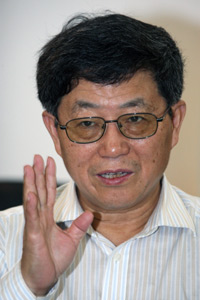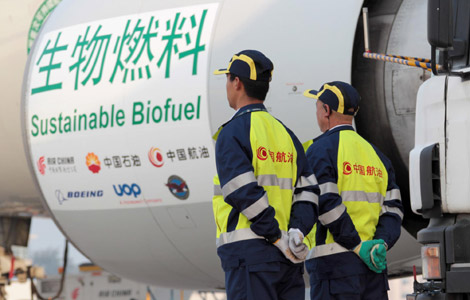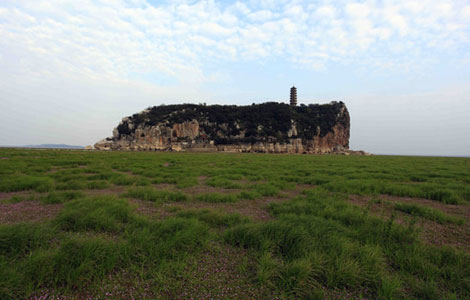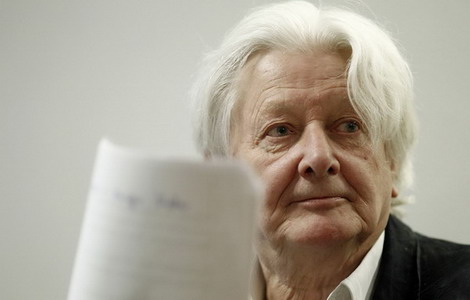Setting course of reform
Updated: 2011-10-29 09:36
By Zhao Yinan (China Daily)
|
|||||||||||
Chi, 60, the head of the Hainan-based China Institute for Reform and Development, said his team is "fortune's favorite" compared with other think tanks. It has managed to maintain financial independence and been able to draw out blueprints for the country's reform.
"Think tanks, especially the independent ones, generate opinions from grassroots society, and they are therefore an irreplaceable substitute for government-funded experts," he said.
|
 Chi Fulin is head of China Institute for Reform and Development. |
The institute was established in 1991 - a year before Deng Xiaoping made his famous tour that unlocked China's high-speed development for the following two decades - and is designed to "advise on China's reform in a reformative way".
Chi, who has more than 20 years' experience as an army scout and then teacher in the military college, is a man of his word and unwavering in realizing his ideals.
"My interest in researching for reform dates to the early 1980s, but I only set my mind to conducting the research independently 10 years after that," he said.
Politely refusing government funds, Chi and his team transformed their research center into a shareholding company by raising funds from a steel giant, auto manufacturers and other businesses.
"It was unstable and difficult at first, but we survived over the years. And now, we have saved some money and have already become self-supporting," he said with a look of pride.
Chen Jinhua, former head of the State Commission for Economic Restructuring, the predecessor of the National Development and Reform Commission, said the Hainan institute is an "initiative that can serve as a model" of both financial independence and research to similar institutes in China.
"They conduct research in a timely and pragmatic manner. By closely following significant issues that have been hampering reform, they have come up with many findings that have been recognized and adopted by the central government," Chen said.
Among the more than 130 policy recommendations the think tank has offered over the years are ensuring land-use rights for farmers, reforming State-owned enterprises and reforming the income distribution system.
Entrusted with offering a report on the country's development blueprint in 2009, the institute called for the government to focus on transforming the developmental pattern.
"I believe our counseling has played a fair or even major role in the government's drafting of the guidelines for development from 2011 to 2015," Chi said.
Chi is an optimist by nature, says that China is facing many challenges and difficulties domestically and internationally.
That underscores the need for the policymakers - especially at a time when Europe has been teetering on the edge of a financial disaster that would likely affect China - to listen to suggestions from independent researchers who have a different perspective.
"But such think tanks are minority in this country, and their existence and development should be encouraged," he said.
Hot Topics
Libya conflict, Gaddafi, Oil spill, Palace Museum scandal, Inflation, Japan's new PM, Trapped miners, Mooncake tax, Weekly photos, Hurricane Irene
Editor's Picks

|

|

|

|

|

|







